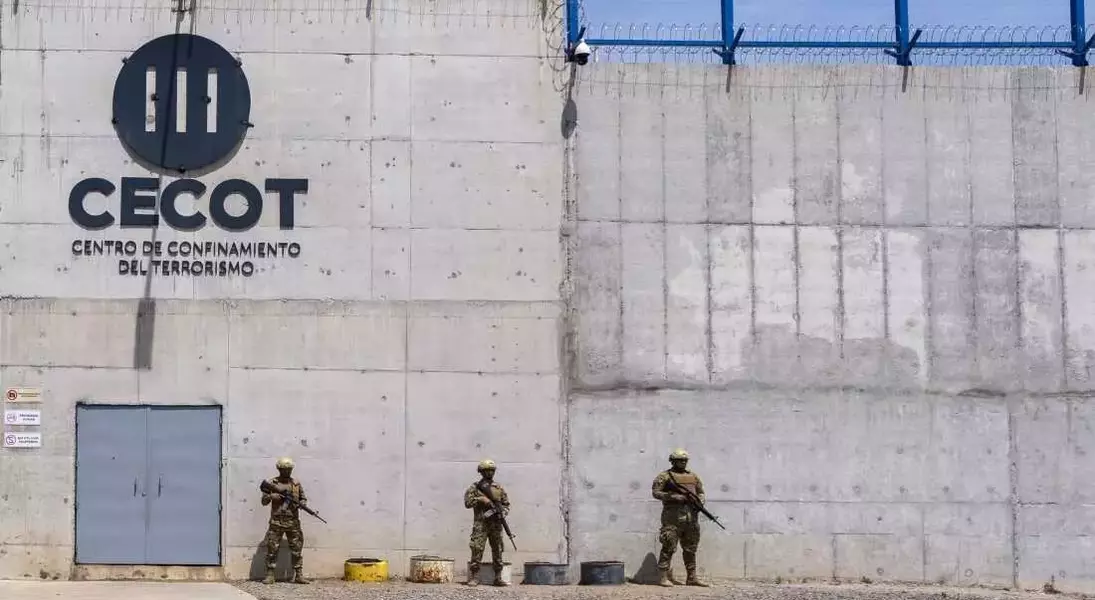
A recent disclosure by the government of El Salvador to United Nations investigators has brought to light a significant inconsistency regarding the status of Venezuelan men deported from the United States to a maximum-security prison in the Central American nation. Contrary to previous official narratives from both the U.S. and El Salvador, it has been revealed that the U.S. government, specifically under the Trump administration, retains considerable influence and control over these individuals. This revelation has profound implications for the legal challenges brought by the deported migrants and raises questions about transparency and accountability in international immigration enforcement.
The United States government's involvement in the detention of these migrants in El Salvador's Terrorism Confinement Center (CECOT) extends beyond mere deportation, suggesting a continued, albeit indirect, oversight. This arrangement was formalized through a $6 million agreement for the housing of 300 migrants, a move that stirred controversy, particularly with the invocation of the Alien Enemies Act. The ongoing legal battles and the U.N. inquiry underscore the complexities of cross-border migration policies and the ethical dilemmas surrounding the treatment of deported individuals, especially when their due process rights may be compromised.
US Influence Over Detained Migrants
The Salvadoran government's acknowledgment to U.N. investigators reveals that the U.S. maintains significant authority over Venezuelan men deported to the CECOT prison. This admission directly refutes earlier claims by American officials who stated they had no power to intervene once migrants were outside U.S. jurisdiction. The ongoing legal battles by over a hundred migrants against their deportation underscore the urgent need for clarity and accountability in these arrangements.
This surprising disclosure, emerging from court documents, indicates that the U.S. government's assertion of being unable to repatriate these individuals is misleading. The United Nations inquiry into the plight of these migrants, deported even after a U.S. judicial order to halt their transfer, has brought to light the underlying dynamics of control. Advocates for the migrants argue that this new information confirms their long-held belief: the U.S. retains de facto control over the fate and conditions of these detainees in El Salvador, challenging the notion that these individuals are beyond the reach of U.S. legal and constitutional protections. This situation raises serious concerns about the due process rights of the deported migrants and the transparency of international agreements concerning human rights and migration.
Challenging Deportation Policies and Human Rights
The revelation of continued U.S. control over deported Venezuelan migrants in El Salvador's CECOT prison has ignited a fresh wave of challenges against the Trump administration's immigration policies. Legal representatives for the migrants argue that this contradicts public statements and undermines the U.S.'s claim of having no jurisdiction or legal responsibility for these individuals once they are deported.
The agreement wherein the U.S. paid El Salvador $6 million to house 300 migrants, coupled with the controversial use of the 18th-century Alien Enemies Act for expedited removals, highlights a contentious approach to immigration enforcement. The case of Kilmar Abrego Garcia, wrongly deported despite a court order, further exemplifies the systemic issues and the severe consequences for individuals caught in these policies. His eventual return to the U.S. for criminal charges, following initial resistance from the administration, underscores the complexities and ethical challenges inherent in managing international deportations, especially when human rights and judicial directives are at stake. This ongoing situation emphasizes the necessity for greater transparency, adherence to legal principles, and protection of migrants' rights in all international agreements.
